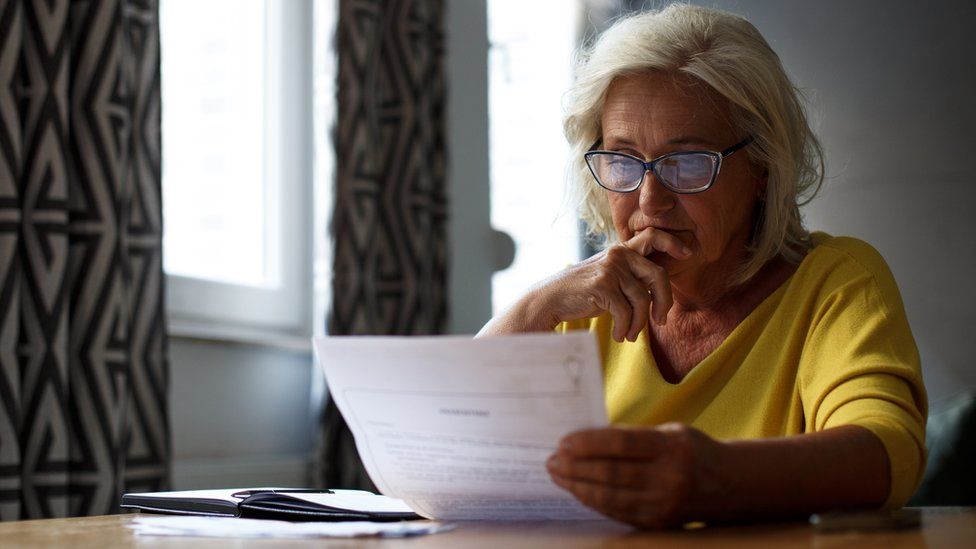ARTICLE AD BOX
 Image source, Getty Images
Image source, Getty Images
By Paul Seddon & Chris Mason, BBC political editor
BBC Politics
The work and pensions secretary has refused to commit to raising the state pension to match official overall earnings figures.
Under the government's triple lock pledge, next year's pensions are meant to rise by the highest of 2.5%, prices, or average wages.
Data released earlier suggested this was likely to be 8.5%, the average wage figure for the summer months.
But Mel Stride said he could not commit to using it for the calculation.
Speaking to BBC Radio 4's The World At One, he added the government remained "committed" to the triple lock promise.
But he said he was "not going to get into the mechanics" of the official process to work out the increase, which begins later this autumn.
The 8.5% earnings figure is likely to be the highest of the three benchmarks this year. It would make the new flat-rate state pension £221.20 a week, or £169.50 a week for the full, old basic state pension.
However, it is understood officials are looking at using a lower figure for earnings, by stripping out the effect of bonuses to public sector workers. The figure excluding bonuses is 7.8%.
Traditionally, the figure for May to July, including bonuses, is used for calculating pensions rises under the triple lock for the following April.
This year's average, however, has been boosted by one-off awards to settle public sector pay disputes.
In his Radio 4 interview, Mr Stride said there was "clearly is a difference" in the effect of bonuses on the figure - but the final decision would be made as part of the legal review this autumn.
He also admitted the triple lock, which has featured in both main parties' election manifestos, is unsustainable in the "very, very long term".
"But of course what I'm dealing with is now - and where we stand at the moment - is we remain committed to the triple lock," he added.
Manifesto questions
Earlier, Labour's deputy leader Angela Rayner refused to promise the triple lock would feature in her party's manifesto ahead of the next general election, expected next year.
She told BBC Breakfast: "We will have to see where we are when we get to a general election and we see the finances".
Prime Minister Rishi Sunak has also refused to say whether it will be in the next Conservative election manifesto. Mr Stride has previously said it "almost certainly" would be.
Both parties have committed to maintaining the triple lock at every election since the Conservative-Lib Dem coalition government first made the pledge in 2010.
Rising inflation over the past year has made the promise more expensive for the government to maintain, whilst the UK's ageing population has raised questions over its long-term viability.
The government's pointed refusal to commit to match the overall earnings figure and instead toy with a figure that discounts some one-off payments would save hundreds of millions of pounds.
But critics could accuse ministers of breaking the spirit of the triple lock.
'Runaway train'
In the near term, neither the Tories nor Labour are committing to maintaining the triple lock after the election. If the Conservatives keep it, it is expected Labour will do so; but if the Tories tweak it, Labour may follow suit.
The Institute for Fiscal Studies (IFS), a think tank, has estimated that maintaining the triple lock could cost an extra £5bn and £45bn per year, on top of inflation, by 2050.
Writing in the Times, former Tory leader William Hague urged the two main parties to give themselves the "space" to change stance on the triple lock, calling it "unsustainable" in the long term.
He said neither party could afford to "commit electoral suicide" by promising to scrap it alone, but "sometimes in politics, you have to help each other a bit".
"Everyone on a runaway train has a common interest in letting someone fix the brakes," he added.

 1 year ago
58
1 year ago
58








 English (US) ·
English (US) ·